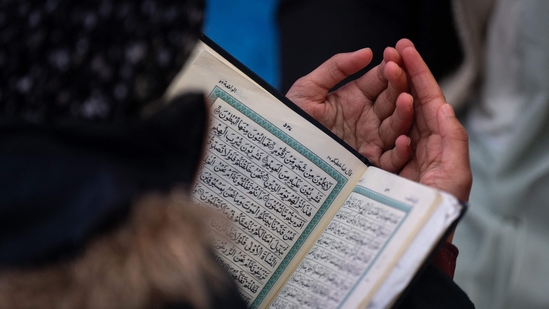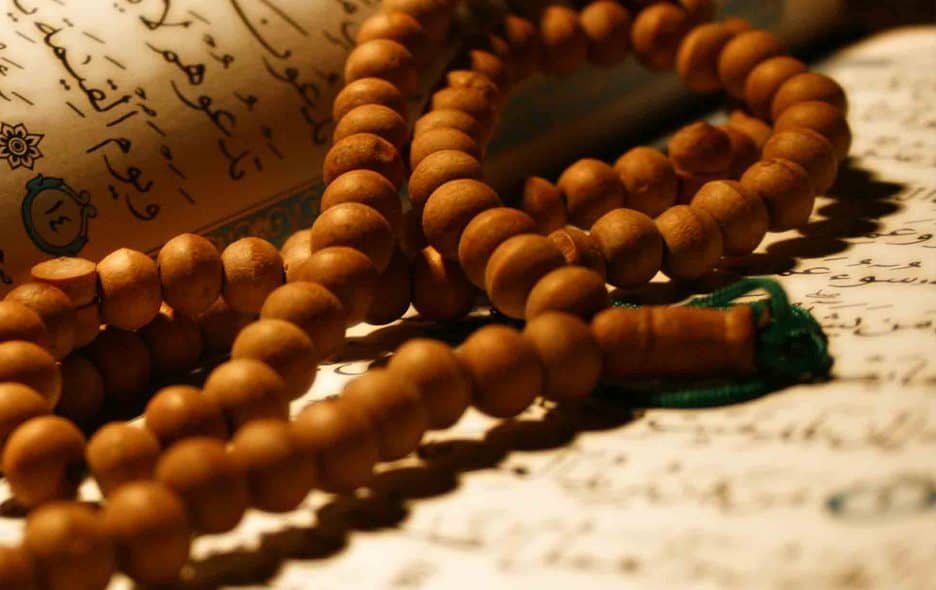Ramadan is a time of spiritual renewal and closeness to Allah (SWT). One of the best ways to maximize our worship during this blessed month is through Salah and Dhikr (remembrance of Allah). Strengthening these acts of devotion can lead to immense rewards, purification of the soul, and a deeper connection with our Creator. Allah (SWT) says:
“And establish prayer and give zakah and bow with those who bow [in worship and obedience].” (Surah Al-Baqarah 2:43)
This guide will help you enhance your prayer and remembrance of Allah (SWT) throughout Ramadan, ensuring that you make the most of this sacred month.
In Case You Missed It
Ramadan Preparation Guide: How to Maximize Your Worship (Part 1)
Ramadan Preparation Guide: Strengthening Your Relationship with the Quran (Part 2)
1. Prioritizing the Five Daily Prayers
The five daily prayers (Salah) are the foundation of a Muslim’s worship. During Ramadan, increasing focus and khushu’ (humility) in Salah is essential.
- Pray on time: The Prophet (SAW) was asked about the most beloved deeds to Allah, and he replied:
- Perform Sunnah and Nafl (voluntary) prayers: These increase rewards and strengthen our connection with Allah.
- Make du’a after Salah: Use this time to seek Allah’s mercy, forgiveness, and guidance.
- Improve your concentration in prayer: Avoid distractions, understand the meanings of Surahs, and visualize standing before Allah.
- Perform Wudu (Ablution) with mindfulness: Renewing wudu before each prayer increases spiritual purity and focus.
- Encourage family participation: Leading family prayers helps create a spiritually uplifting environment at home.
2. The Power of Taraweeh Prayers
Taraweeh is a special Sunnah prayer performed during Ramadan. It offers a chance to listen to and reflect on the Quran.
- Attend Taraweeh in congregation: Praying in the masjid fosters unity and spiritual motivation.
- If praying at home, remain consistent: Even praying 2 rak’ahs with sincerity is beneficial.
- Listen attentively to the Quran: Reflect on the meanings of the verses recited.
- Make personal du’as between the prayers.
- Avoid rushing through the prayer: Perform each rak’ah with sincerity and devotion.
- Use Taraweeh as a means of increasing Quran memorization: Listening to the recitation repeatedly can help retain Surahs.
The Prophet (SAW) said:
“Whoever prays during the nights of Ramadan with faith and seeking reward, all his previous sins will be forgiven.” (Bukhari, Muslim)
3. Increasing Dhikr (Remembrance of Allah)
Dhikr is one of the easiest and most rewarding acts of worship. It keeps our hearts connected to Allah (SWT) throughout the day.
Recommended Dhikr for Ramadan:
- Tasbeeh: SubhanAllah (Glory be to Allah)
- Tahmeed: Alhamdulillah (All praise is due to Allah)
- Takbeer: Allahu Akbar (Allah is the Greatest)
- Tahleel: La ilaha illa Allah (There is no god but Allah)
- Seeking Forgiveness: Astaghfirullah (I seek Allah’s forgiveness)
- Sending Salawat upon the Prophet (SAW): Allahumma salli ‘ala Muhammad (O Allah, send peace and blessings upon Muhammad)
- Reciting Ayat-ul-Kursi after every obligatory prayer: This is a means of protection.
- Repeating the morning and evening Adhkar: These du’as provide immense spiritual and worldly benefits.
- Making Dhikr during daily activities: Remember Allah while working, walking, or before sleeping.
The Prophet (SAW) said:
“Shall I not inform you of the best of your deeds, the purest to your Master, the highest in your ranks, better than spending gold and silver, and better than meeting your enemy and striking their necks?” They said, “Yes, O Messenger of Allah.” He said, “Remembrance of Allah (Dhikr).” (Tirmidhi)
4. Incorporating Salah and Dhikr into Daily Routine
To ensure consistency in worship, develop a structured routine:
- Start your day with Fajr Salah and morning Dhikr.
- Recite Quran and engage in Dhikr between prayers.
- Pray Dhuha (mid-morning) and Nafl prayers for extra blessings.
- Increase Istighfar (seeking forgiveness) during the day.
- Engage in Dhikr while commuting, cooking, or walking.
- Make Dhikr after breaking your fast and before sleeping.
- Dedicate a portion of the night for voluntary prayers and Quran recitation.
- Encourage children to join in prayers and remembrance, teaching them short supplications.
5. The Last Ten Nights: Night Prayers and Seeking Laylatul Qadr

The last ten nights of Ramadan are the most blessed, with Laylatul Qadr (the Night of Decree) offering rewards greater than a thousand months (Surah Al-Qadr 97:3).
- Pray Qiyam-ul-Layl (Night Prayers): Increase your Tahajjud prayers and supplications.
- Make abundant du’a: The best du’a for Laylatul Qadr is:
“Allahumma innaka ‘afuwwun tuhibbul ‘afwa fa’fu ‘anni.” (O Allah, You are Most Forgiving, and You love forgiveness, so forgive me.) (Tirmidhi)
- Spend the night in worship, Dhikr, and Quran recitation.
- Encourage family participation in worship to maximize rewards.
- Engage in acts of charity and kindness to earn additional blessings.
Conclusion
Salah and Dhikr are powerful means of drawing closer to Allah (SWT) in Ramadan. By improving our prayers, increasing our remembrance of Allah, and seeking the blessings of Laylatul Qadr, we can truly maximize our worship and attain spiritual elevation.
May Allah (SWT) accept our prayers, Dhikr, and devotion this Ramadan. Stay tuned for Part 4: Fasting with Sincerity and Gratitude. Ameen!



